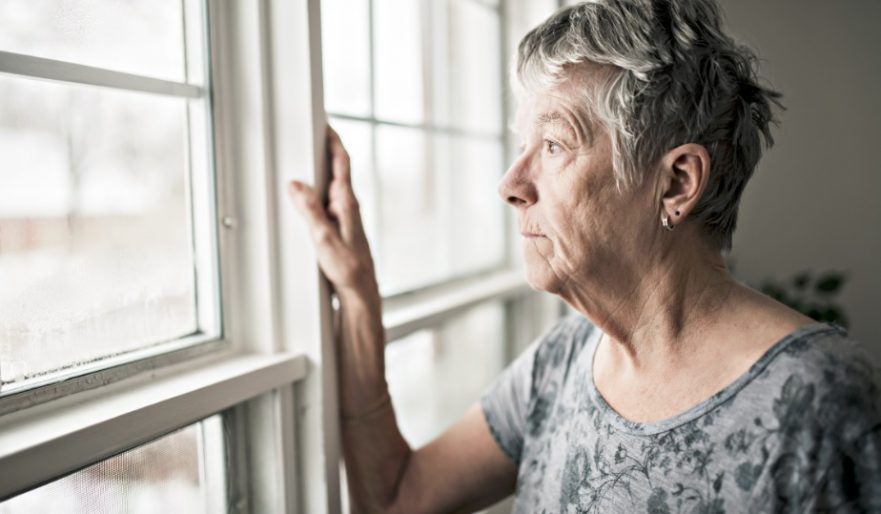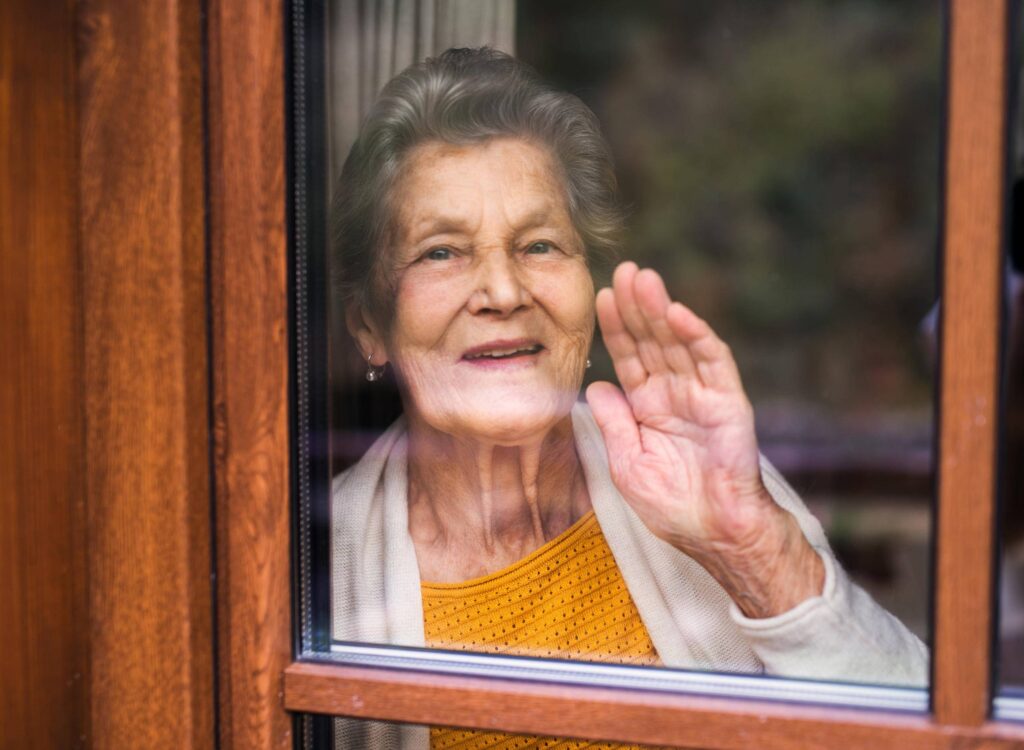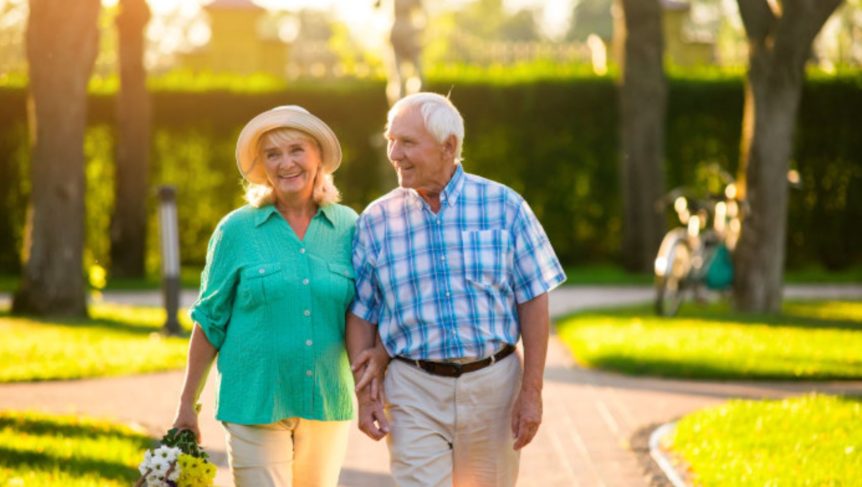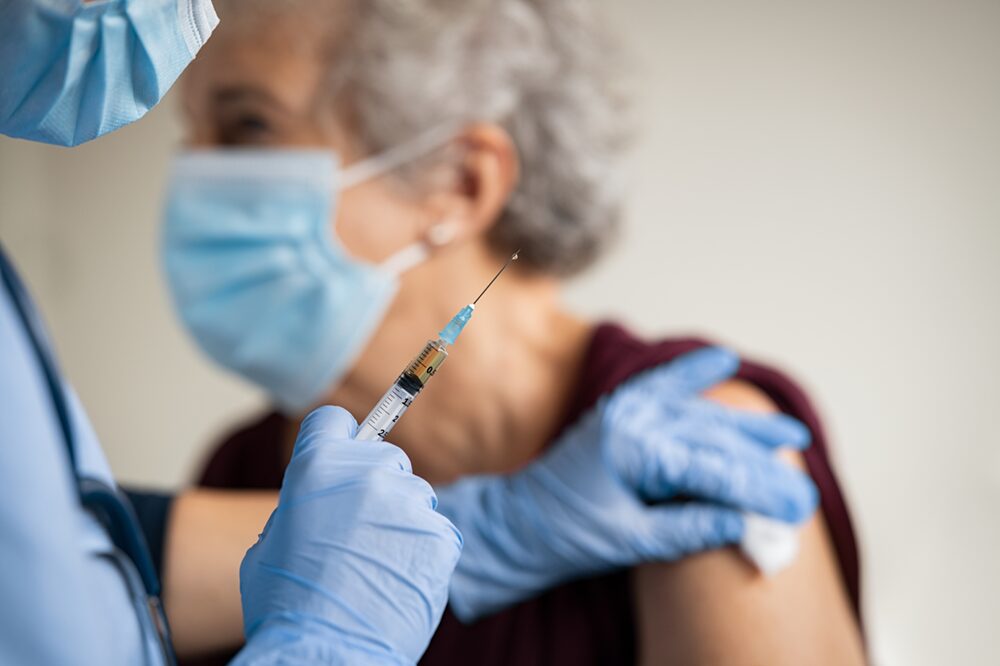The Effect of COVID-19 on Elders’ Mental Health

No doubt, a lot of people’s lives turned topsy-turvy with COVID-19.
Lockdowns turned once-bustling capitals into mere ghost towns. At one point, more animals were roaming the streets than people, and nature started reclaiming many cities worldwide.
As countries experienced a drastic turn of events, including economic stagnation and inflation, many health problems, specifically those related to mental health, began to surge.
These mental issues are not tied to one generation. Generation Z, Millennials, Baby Boomers, the Sandwich Generation all suffer from depression and anxiety caused by the pandemic.
Though it might be easier for the youngsters to get back on track, the elderly have had it way worse! The governments labeled them as the most vulnerable group in society. So any contact with them could potentially lead to their death.
As a result, loneliness and isolation during the Covid-19 pandemic have exacerbated the episodes of misery and stress experienced by the elderly.
So what main factors in our daily lives have caused such looming effects?
No Touching!

Hear ye, Hear ye!
There must be at least 2m distance between two people, and under no circumstance should they exchange handshakes or hug each other.
How can elders who’ve found solace in conversations with their local shop owners or next-door neighbors cope with such a huge change?
People tend to take for granted things that they are so used to, such as the sense of touch. Studies have shown the powerful effect of communication on people’s moods. It soothes their breathing, increases their dopamine levels, aka the happy hormone, and decreases the symptoms of depression.
The importance of physical contact is witnessed, for example, through the many benefits it offers to babies and their mothers:
- For babies, it boosts their immune system, stabilizes their heartbeat/ breathing, and improves long-term brain development.
- For mothers, it contributes to a better breastfeeding experience and even reduces the risk of post-partum depression.
It’s as if we are wired to reach out and touch things around us immediately after being born. This yearning for physical contact continues till old age.
Remove the freedom to touch, and you’ll get a whole population of elders who’ll be at risk of dementia or Alzheimer’s in the next five years.
The elderly residing in nursing homes find it so difficult to cope with the lack of contact with the outside world. True that nurses provide needed comfort from afar, sometimes watching their relatives behind windows sending air kisses and hugs agitate them even more.
In some cases, couples residing in the same care home couldn’t stand the distance anymore and wanted to touch each other. Eventually, nurses covered their hands in plastic wraps to give them a chance to feel the love again.
Quarantining for the elderly is indeed for their safety. However, such an announcement by governments has been misconstrued worldwide. The slogan of “social distancing” spread everywhere has had people running scared from socializing altogether.
The correct slogan should be to practice “physical distancing” but continue to contact people you hold dear to your heart through phones and video calls.
No matter how much people tell elders to talk to others through mobiles or laptops, there’s no feeling that can replace authentic physical touch.
No Walking in Public Spaces!

Hear ye, Hear ye!
From now on, you mustn’t congregate in public places!
Many elders who had grown accustomed to seeing and meeting new people at cafes or parks have been forced to sit at home.
So their schedule has been the same every day: wake up, eat, watch TV, eat, sleep….repeat!
Whereas during the pre-pandemic, elders could walk about and chat here and there. They would ask how their neighbor’s daughter has been or if the shop owner’s son is married or not.
It’s the little things.
Just taking a morning stroll in the park every day could make a lonely elder’s day. The breath of fresh air, the tweets of birds, and the barks of dogs would stimulate their senses reassuring them that they’re still part of this world.
A lot of the elderly don’t have large patios or big houses to walk around. They might live in small apartments and the only way to get their blood circulation up and running is by going to the local park. Instead, they have to be confined like prisoners, watching their life fly by in front of their eyes.
Though families try to uplift their elder’s spirits as much as possible, many simply don’t have the financial means to take care of them, unfortunately. Pre-pandemic, family members would occasionally stop by to bring medications and food to their elders. A considerable number of elders have disabilities such as hearing impairment, hip fractures, hypertension, severe asthma, and heart failure. How will they get by with no one to assist them?
Being shut off from the outside can cause dire health consequences. According to one study cited by the Centers for Disease Control and Prevention (CDC), loneliness and isolation lead to a 29% increased risk of heart disease and a 32% increased risk of stroke.
The above study was published back in 2024. Imagine the surge in 2024 and the coming years ahead.
What to Do?

It’s upsetting when you’re old and full of energy but cannot expand that pent-up energy anywhere. On top of that, you live alone and crave companionship. With the current increase in vaccination rates, many retirement homes have staff that is fully vaccinated. This can be an option for you to consider. You can check one of the retirement homes here.
Such retirement homes usually offer a complete list of amenities and provide both body and mind comfort. They also have services like housekeeping or grooming assistance involved, which are what many elders need. Most importantly, they give an excellent chance to find like-minded seniors and never feel alone by speaking with them about good old times. So why not look into living in a healthy community that is ready to welcome you and assist you with professional care?




